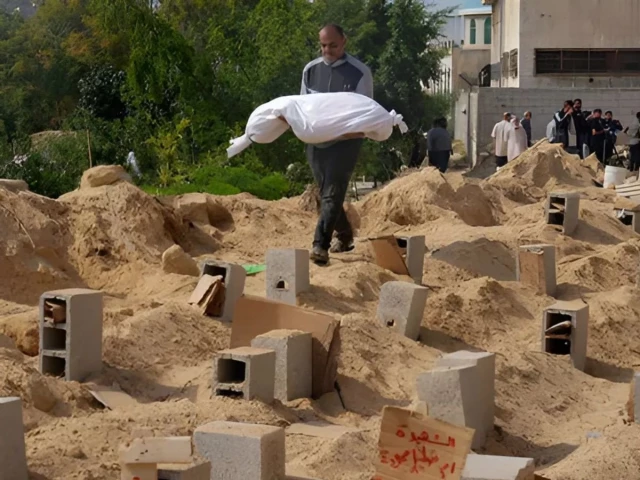Visiting the site of the Srebrenica massacre, where over 8,000 men and boys were killed, makes the reality of genocide painfully clear. The commemorative site of this genocide and other locations associated with the Bosnian War provide a haunting insight into the causes and consequences of genocide, as well as a chilling perspective on how events in Gaza today could shape the region and its people in the years to come.
Genocide is not a single moment in time but rather a process of cyclical trauma that casts its shadow across decades.
At a broader level, the horrifying violence of the genocides of the 20th and 21st centuries raises urgent questions about the efficacy of parochial nation states as mechanisms for governing diverse societies.
The celebrated political philosopher Franz Fanon, who was also a practising psychiatrist, argued that traumatic events of historic magnitude, such as colonisation and war, can trigger a crisis of collective identity that permeates a society. These events can fundamentally alter how a society, and the individuals within it, perceive themselves and others. He writes that when societies experience “systemic negation”, they confront the existential question: “Who am I?”
In Bosnia and Herzegovina, this crisis of identity is starkly visible.
In Sarajevo, one is surrounded by the memory of genocide, visible in the form of numerous museums and murals. Across the old city, one finds Sarajevo Roses, where bright red resin has been poured into the damaged pavements to mark the places where bombs fell during the years-long siege of the city. In a nation where nearly every Bosniak was either directly affected or has family who were affected by the war, these acts of commemoration are not merely symbolic; they fundamentally shape how this society views itself. In many ways, Bosniak identity today is irrevocably linked to the harrowing events of the early 1990s.
According to Fanon, the primary way in which oppressed societies find “catharsis” is through acts of violence against their oppressors.
Turning to Palestine, this raises a critical question: considering the immense “collective trauma” endured by the Palestinian people, could a non-violent resolution to genocide or apartheid even be possible?
In Bosnia, the violent consequences of war have manifested in a peculiar and highly tense state infrastructure. Bosnia today operates as two distinct entities within a single sovereign structure: the Muslim-majority Federation of Bosnia, which constitutes 51 per cent of the country, and the Orthodox Christian (and ethnically Serb) Republika Srpska, which comprises the remaining 49 per cent. To many Bosniaks, the existence of Republika Srpska—an autonomous, Orthodox-majority entity with its own president, parliament, and police force—is perceived as a “genocidal construct”, a culmination of what Serb forces achieved in 1995. Tensions between the two communities remain high.
While the Bosniaks commemorate the victims of genocide and hold these memories as central to their identity, many Serbs within the country deny that such a genocide ever occurred. Earlier this year, Republika Srpska introduced a new school curriculum that portrays Ratko Mladić and Radovan Karadžić—both convicted war criminals—as liberating “war heroes”. In 2021, when the UN High Representative to Bosnia imposed a ban on genocide denial, Bosnian Serbs responded by threatening secession.
The international community may legislate against war crimes at the UN and convict individuals through bodies such as the ICC and ICTY, but how can the deep psychological wounds of entire societies be healed?
Many thinkers of the 20th century, including Edward Said, envisioned a “one-state solution” for Jews and Palestinians, while others advocated for two states that would amicably share their collective historical and religious heritage. After three-quarters of a century of war, fearmongering, and oppression—and with the Bosnian example in mind—such visions seem increasingly difficult to realise within the framework of nation states.
The haunting memory of 20th-century genocides and the contemporary realities of Gaza and Bosnia highlight the profound failures of the nation state. When states are constructed around the language, religion, ethnicity, or values of a specific community, they inevitably privilege one identity over others. In some nations, as seen in many Western liberal democracies, this issue has been mitigated by prioritising an individual’s loyalty to the state over all other allegiances. However, in nations where traditional tribal, religious, or ethnic loyalties persist, this issue has been addressed in various ways—decentralisation, secession, and, tragically, genocide.
To put it plainly, genocide is one potential outcome of the inherent problems of the nation state; it is not the only resolution, but it is one of them—a terrifying reality.
Humans are not incapable of living in diverse societies while preserving their individual identities. In fact, this has been the norm for much of human history.
Perhaps it is time to reevaluate the nation state, which is fundamentally exclusivist in nature, as a viable means of organising inherently pluralistic societies. The horrors of Srebrenica and Gaza demand urgent and fundamental change—change that must begin with a reevaluation of the political values that underpin our world.



COMMENTS (3)
Comments are moderated and generally will be posted if they are on-topic and not abusive.
For more information, please see our Comments FAQ